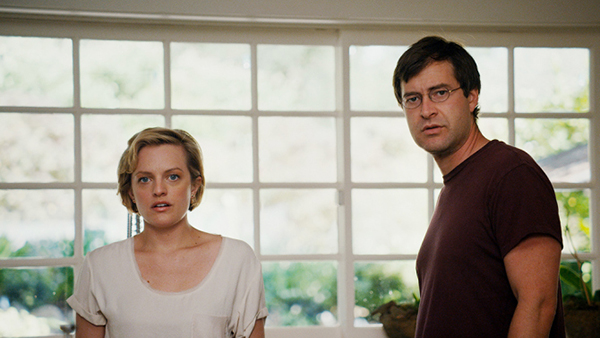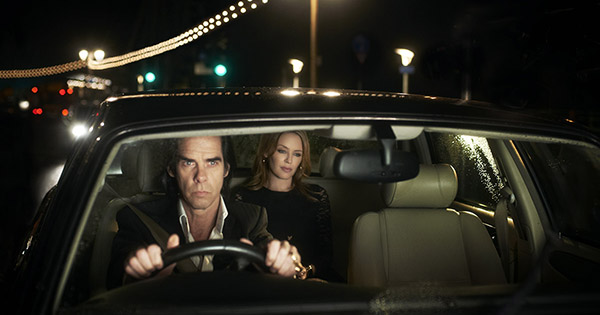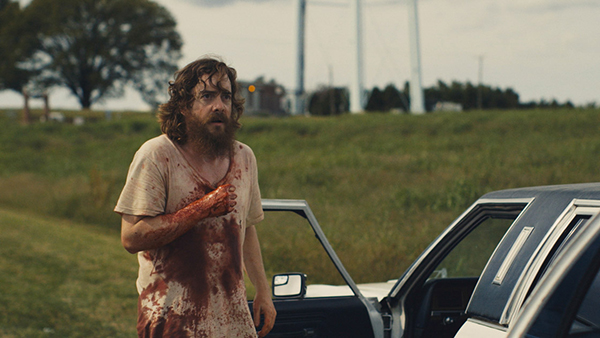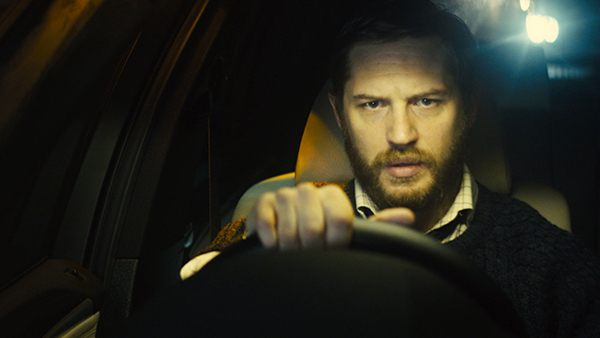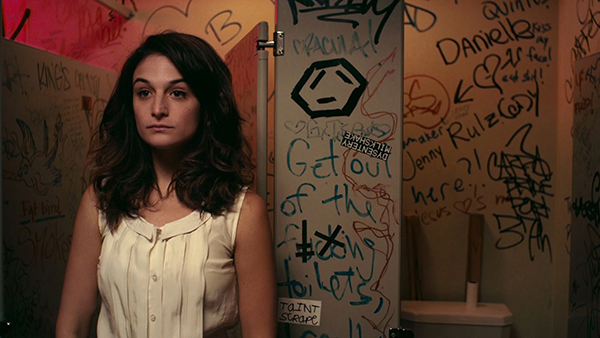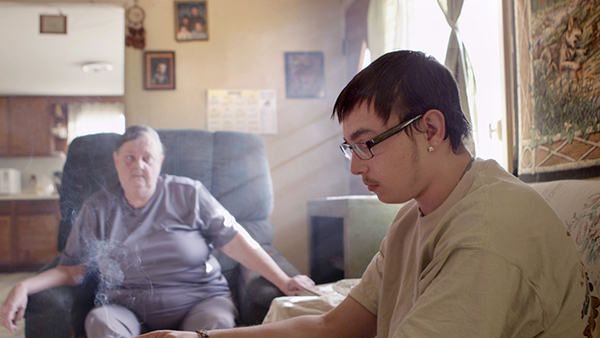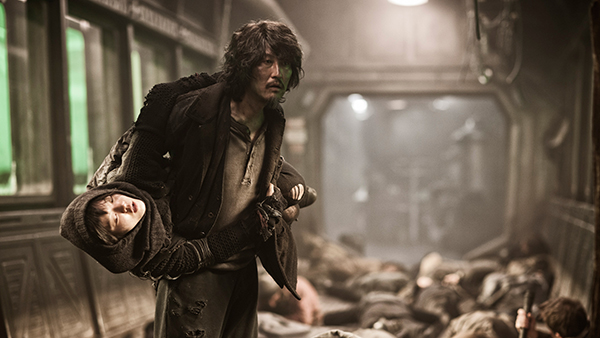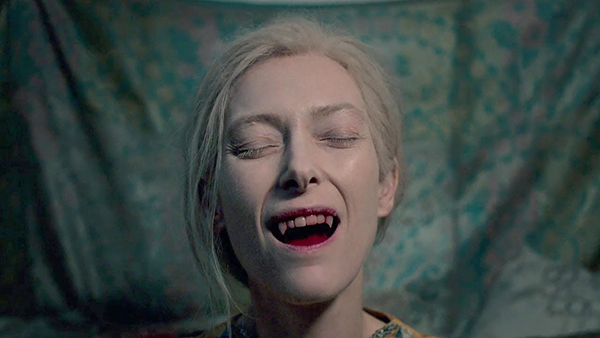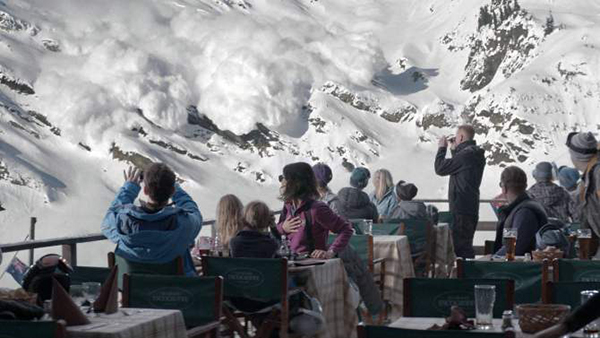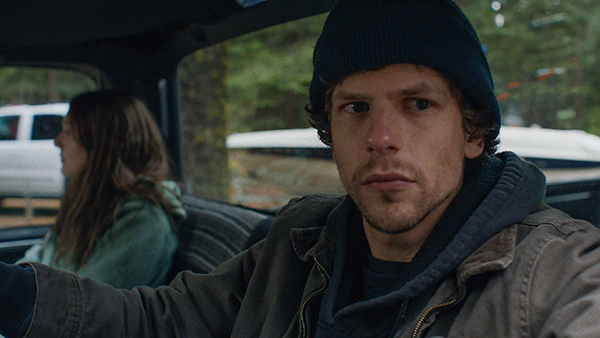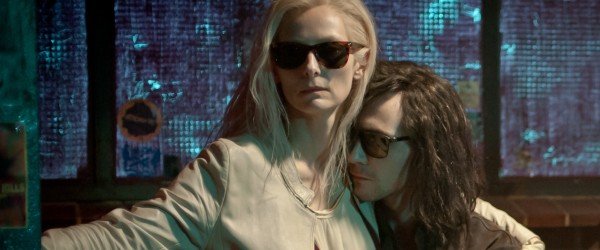
2014 Film in Review
Culture, Film, Reviews, UncategorizedAnother year past, and this was a bit of a strange one. Franchises flourished while many continued to do daring work for cheap, as the spending gap between rich and poor films continued to widen. This year saw huge risks and fearless innovation cross further into the mainstream, thrilling and puzzling audiences alike, from Scarlett Johansson’s man-eating alien to the most clever toy commercial of all-time. But for all of the year’s highs, 2014 seemed to lack some of the transcendent moments of the year prior; or perhaps the pool of brilliance is becoming so deep that many films widely praised by critics and audiences alike – from Foxcatcher to Inherent Vice to The Grand Budapest Hotel – simply fell short for us. Regardless, there were several stand-outs and staggering achievements this year, and below you’ll find our favourites.
15. The One I Love (Charlie McDowell)
This was the best of the “unexplained double” trend this year, with production value and craft that exceeded Coherence‘s valiant no-budget effort, and with a far less frustratingly oblique approach than Enemy. Charlie McDowell’s irreverent feature directorial debut, from Justin Lader’s script, starts in mumblecore doldrums: a therapist’s office as married couple Ethan (Mark Duplass) and Sophie (Elizabeth Moss, who is just the best) seek counselling. But once they begin the weekend getaway meant to save their relationship, things take a bizarre, original turn and The One I Love becomes a truly memorable cinematic experience. The supernatural elements of the story are treated with just the right measure of honesty and fantasy, and Duplass and Moss’s double duty shows the depth, versatility and humanity of each actor.
14. 20,000 Days On Earth (Iain Forsyth, Jane Pollard)
Like Nick Cave’s music, this film exists somewhere between naked honesty and romantic fantasy. Conceptually set on the 20,000th day of the iconic singer’s life, the film is truly a work of creative non-fiction, blending live music and archival material with surreal vignettes and poetic narration, making great use of Cave’s two greatest assets: mystery and language. And yet for a music “doc”, there is more to be learned here about the man, his work, his family and his process than you’ll find in any VH1 special, because understanding Nick Cave requires much more than a summary of facts. This is a celebration and study of the artist that stands out as one of the great musician films of the century so far.
13. Blue Ruin (Jeremy Saulnier)
Financed by a successful Kickstarter campaign, Blue Ruin is a stark and haunting revenge tale from writer, director and cinematographer Jeremy Saulnier, who shows incredible focus and concision as filmmaker despite his limited resume. Wisely keeping his story simple so as to keep the tension taut throughout, Saulnier follows Dwight, a vagrant, on his quest to avenge his parents’ death upon the release of their killer from prison in Virginia. The photography is brilliant, the performances are strong and violence is jolting and precise; it’s safe to say that every one of the 37,828 dollars raised was well spent.
12. Locke (Steven Knight)
I can’t think of many actors I’d rather spend 90 minutes in a car with than Tom Hardy. That Steven Knight’s drama, set on the highway from Birmingham to London, is able to stay so consistently engaging and tense – without the help of any profound violent or supernatural element, no less – is testament to a razor sharp script and the brilliant command of its star, who is among the greatest actors of his generation. As Ivan Locke continues to field calls from the family missing him and the jobsite he walked away from, a moral quandary unfolds that touches at the core of how we understand human integrity, and inspires conversation and reflection for days to come.
11. Obvious Child (Gillian Robespierre)
This is the kind of indie that gets easily dismissed by audiences with mainstream tastes and misogynist predispositions, but Gillian Robespierre’s funny, biting, and brutally honest comedy about a woman named Donna who decides to have an abortion after a one-night stand deserves recognition. Jenny Slate’s performance as the comedian who drunkenly bangs the easy “boring guy” after having her heart broken is the film’s pulse, finding just the right balance of humour and humanity to keep the character likeable and sympathetic as she navigates often-uncomfortable, embarrassing territory. The story may be small but it’s so genuine that it really touches down, and hopefully is a sign of much more to come from both Robespierre and Slate.
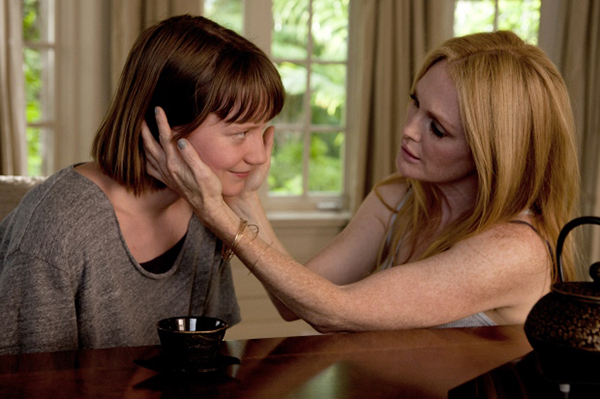
10. Maps to the Stars (David Cronenberg)
Turning his camera on the depravity and detachment of Hollywood, Canadian auteur David Cronenberg returns to form with Maps to the Stars after 2012’s disappointing Cosmopolis. Following the overlapping stories of an aging actress desperate for a role (Julianne Moore), a foul child star (Evan Bird) and his parents (John Cusack and Olivia Williams, channeling the vapid soul of Kris Jenner), a wide-eyed burn victim eager to taste the glamour of Tinseltown (Mia Wasikowska), and a limo driver/acting hopeful (Robert Pattinson), Cronenberg blends the surreal with satire in surprising, sometimes puzzling ways. All of the characters start as cliches before taking very dark and complex turns, in a story that is densely plotted but often abstract. Reminiscent of Mulholland Drive and The Player, Maps to the Stars can be flawed and perverse (it is, after all, Cronenberg) but is also haunting, hilarious, and impossible to shake.
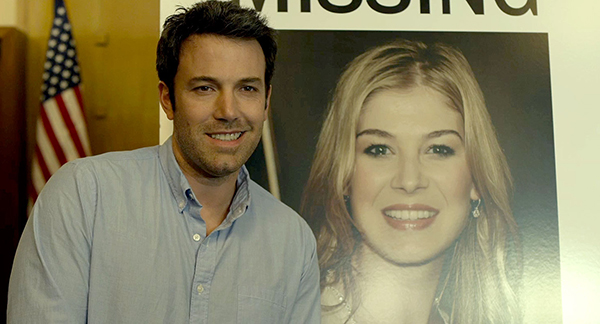
9. Gone Girl (David Fincher)
Hitting theatres right at the start of festival season, Gone Girl is a reminder of the awesome power of perfectly executed Hollywood filmmaking, an art that seems rarer and rarer with every franchise acquisition or corporate merger. This is a big budget, hugely successful movie from a major studio offering a decidedly adult mystery, and every plot twist, performance and set piece is a reminder of what good the power and influence of the American movie machine can do in the right hands. Ben Affleck and Rosamund Pike both triumph in their roles as a married couple at the centre of a controversial and very public missing-persons case. For audiences not burdened with comparing the film to the book, as the plot turns pulpy it just gets more and more fun, starting out a tense, sparse mystery and shifting to a delirious femme fatale thriller half way. Perhaps in hands less assured as master craftsman David Fincher’s, this could have easily come off the rails, but the tone and pacing are constantly proof of the system working like clockwork.
8. Rich Hill (Tracy Droz Tragos, Andrew Droz Palermo)
Our favourite documentary of the year (and admittedly, we missed some of the year’s most notable) is a portrait of poverty in the American South that is human, compassionate and deeply moving. “I never had any hopes and dreams” says Delena, the mother of Appachey, a surly 13 year-old misfit and one of three main subjects of the film. It’s one of many powerful emotional blows that the characters onscreen are amazingly forthcoming with, allowing access into their squalid homes and desperate hearts with incredible candor. The film weaves Appachey’s story into a year-long tapestry that includes the lives of two other boys: the charming and hopeful 15 year-old Andrew, who looks as though he’d be captain of the football team if his destitute family wasn’t constantly moving towns, and the troubled but funny 16 year-old Harley, who is struggling to come to terms with abuse, his violent temper, and his mother’s recent jail sentence. The kids live separate lives with distinct storylines, but their shared cultural heritage binds them and the documentary. This film isn’t a scathing indictment but a portrait of an American condition, one that is often overlooked or condemned as the fault of the victim. But the truth is pretty plain: it can be really, really hard out there.
7. Snowpiercer (Bong Joon-ho)
Korean auteur Bong Joon-ho’s genre-defying sci-fi adventure was such a refreshingly weird affair that it’s truly a disappointment that Harvey Weinstein hijacked the film’s scheduled wide release, because we would have loved to have seen how mainstream audiences expecting another generic adventure would have responded to Tilda Swinton’s insane dictator, or Alison Pill’s classroom brainwashing, or even the oft-bizarre story at the heart of Snowpiercer. Set 17 years after scientists accidentally froze the entire planet in an attempt to combat global warming, Snowpiercer follows a revolt on the perpetually moving train that holds the world’s only surviving humans, led by steely hunk Chris Evans. Bong infuses such an odd charm and visual flair to this bleak story, and yet for all it’s funny eccentricities, at it’s heart it’s still just an exciting action movie, the best of the year.
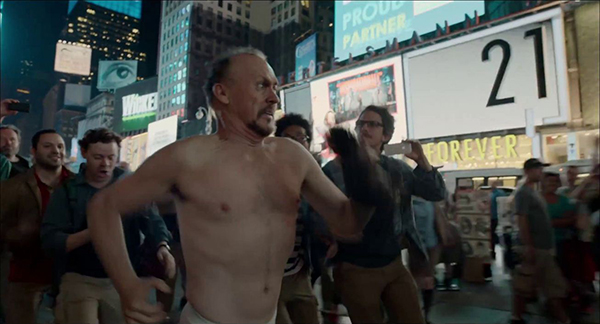
6. Birdman (Alejandro González Iñárritu)
2014 was a year that saw a lot of big chances pay off, and Birdman paired incredible ambition with perhaps the most original vision of the year. Michael Keaton finally got the opportunity of his career to flex the range and intensity we always knew he had, playing a thinly-veiled incarnation of his own post-Batman professional self. As a blockbuster star trying desperately to do some “serious” work on the stage, Keaton’s Riggan Thomson is at the centre of a three-ring circus populated by his daughter (Emma Stone), the Actor (Ed Norton), his starlet (Naomi Watts) and his agent (Zach Galifonakis), all of whom deliver career-highlight performances. That some of the scenes (and even the long-take conceit that runs through the entire film) can get indulgent and unwieldy is just further testament to the big, bold risks director Alejandro González Iñárritu and crew took to deliver this wholly original work to the screen, and they should be lauded rather than scrutinized to death. Someone’s got to jump off the cliff – others can refine the swan dive in the years to come.
5. Only Lovers Left Alive (Jim Jarmusch)
Leave it to Jim Jarmusch to find an exhilaratingly original way to bring vampires to the big screen in 2014. The auteur responsible for Dead Man and Ghost Dog mined the heavily-saturated subject matter and imagined the living dead as the last true Rock Stars of our time. From its pitch-perfect score to the gorgeous photography – from Tangier to the rotting streets of the Motor City – Only Lovers Left Alive is a symphony of style, brought to the life by Tom Hiddleston and Tilda Swinton, the blood-thirsty lovers braving the new century. The film somehow achieves the effect of feeling almost plausible (OF COURSE vampires would live in the abandoned neighbourhoods of Detroit!) while existing in an imaginary space all of its own, and most importantly make the vampire once again sexy, jaded and totally fucking cool.
4. Force Majeure (Ruben Östlund)
Don’t you just LOVE family vacations? This Swedish offering is perhaps the year’s most precise and scathing family drama, one that brings big laughs and painfully awkward moments in equal measure. Following the unraveling of the family unit after a father abandons his family on a ski hill in the face of an avalanche, this film is perhaps the most devastating portrait of the male ego ever put to film. As the patriarch at the centre of the film, Johannes Kuhnke’s Tomas is facing a self-imposed sentence as a married dad, and despite his love for his kids and wife his narcissistic vision of himself fades with every day, which makes his act of cowardice at the heart of the film’s narrative so utterly compelling. Never do we see the perfectly content man’s true unhappiness so masterfully articulated as we do in this film, and more than holding her own is Lisa Loven Kongsli as Ebba, the wife and mother who has to face not just a devastating loss of respect for her husband but a new awakening as woman, one that is piqued so perfectly by a conversation with a swinger in the ski lodge. Force Majeure is an epic of human imperfection.
3. Night Moves (Kelly Reichardt)
Kelly Reichardt’s tense, lyrical drama about environmental activists dealing with the repercussions of a foolish act of extremism largely flew under the radar of most audiences and scarcely got a North American theatrical release. It’s unfortunate, because anchored by three outstanding performances by Jesse Eisenberg, Dakota Fanning and Peter Sarsgaard is a story that meditates deeply on how the 99% has to grapple with forces too big to topple, and how even the most seemingly noble intentions can make monsters out of anyone. I will admit that I found the slow wagon crawl of Reichardt’s previous effort, Meek’s Cutoff, to be frustrating and futile, but Night Moves is brilliantly able to use its sparsity to great effect, amplifying the tension and keeping the audience locked in the psyches of our troubled protagonists. There is not one frame or line of dialogue wasted, and as Eisenberg’s character is pushed into darker and darker territory by paranoia, a classic existential nightmare unfolds that is equal parts terrifying and devastatingly familiar.
2. Whiplash (Damien Chazelle)
“NOT MY TEMPO.”
Whiplash was the surprise of the year, the little film that could, that tiny moment that proved more compelling than any army or transformer or intergalactic mission. Because as much as we turn to the movies to take us to the moon and back, there is rarely anything as gripping onscreen as the human struggle, and nowhere was that more graphic and articulate than in the story of a young conservatory jazz drummer and his fanatical teacher. If you didn’t realize that JK Simmons was fucking great before, this film will hammer it home until your fingers are bleeding, and to his credit Miles Teller holds his own and then some as the ambitious youth at the centre of the story, one with no time for love or downtime or simple joy, really. That this is a debut film from Chazelle is yet another reason to be awestruck, as this riveting, focused drama feels like the work of a very accomplished and confident filmmaker.
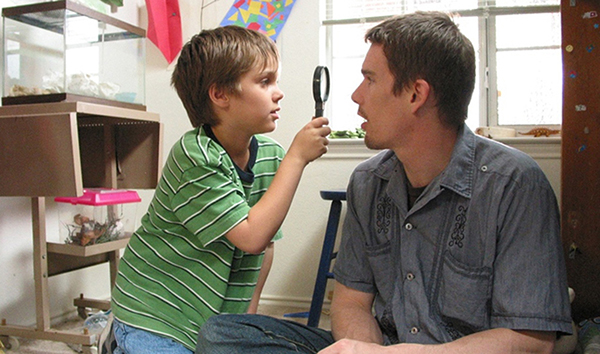
1. Boyhood (Richard Linklater)
There isn’t much left to be said about Boyhood, easily the year’s most critically beloved film. This odyssey though adolescence – a crowning achievement for director Richard Linklater’s always innovative body of work – will be studied by filmmakers for decades to come and just as fervently celebrated by audiences. That the grand experiment paid off with such honest and emotional rewards is testament to not just the vision but the cast and crew that executed a twelve-year shoot into a cohesive, singular work that did more to speak to the human condition than any other film in 2014. Ethan Hawke is earnest and believable, Patricia Arquette is heartbreaking, and Ellar Coltrane grows up right before our fucking eyes. People are funny, they’re hurtful, they’re ignorant and they’re endearing, like any family just struggling to make sense of the modern condition.
There is a bittersweet sensation that one gets watching the film, one that has the uncanny ability of reducing life to a series of fleeting, inconsequential moments, which can be unsettling, but such stirring of the pot is the mark of a great artwork, one that resonates long after the credits roll. The film deserves all the gold that’s coming its way, so roll out the red carpet and join the parade. It’s been a long time coming. Alright alright alright.





